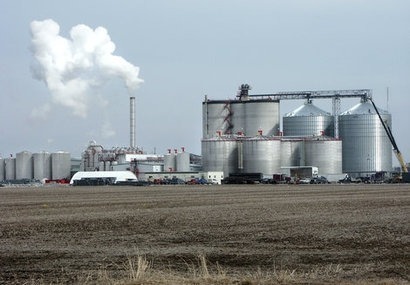
The funding will be focused on designing, constructing and operating integrated biorefinery facilities as part of the Obama Administration’s goals to reduce carbon emissions and US dependence on imported oil. The facilities will help to produce biofuels from sustainable, non-food, domestic biomass resources and are modelled on petroleum refineries except that they will convert biomass feedstocks, such as plant and algal materials, to produce biofuels such as ethanol, butanol and biodiesel. They will also produce bioproducts and generate biopower.
The funding will support American efforts to improve and demonstrate processes that break down complex biomass feedstocks and convert them to gasoline, diesel and jet fuel, as well as plastics and chemicals.
“The domestic bio-industry could play an important part in the growing clean energy economy and in reducing American dependence on imported oil” said Lynn Orr, DOE’s Under Secretary for Science and Energy. “This funding opportunity will support companies that are working to advance current technologies and help them overcome existing challenges in bioenergy so the industry can meet its full potential.”
Currently, the US spends approximately £1 billion every three days on imported oil. The Energy Department and the US Department of Agriculture estimate that the country could sustainably produce more than 1 billion tons of biomass that could be converted to biofuels, bioproducts and biopower. This in turn would spur economic development in rural communities across the nation as well as helping to heat homes, fuel vehicles and replace everyday materials such as plastics. This could potentially displace over 25 percent of US petroleum consumption and reduce greenhouse gas emissions by 550 million tons.
Previous investments by the Energy Department in biomass have helped to develop a number of biofuels pathways, some of which are ready to scale up towards commercialisation. The new funding announcement will advance the Department’s goal of producing at least three total pioneer commercial plants over the next twelve years.
For additional information:

